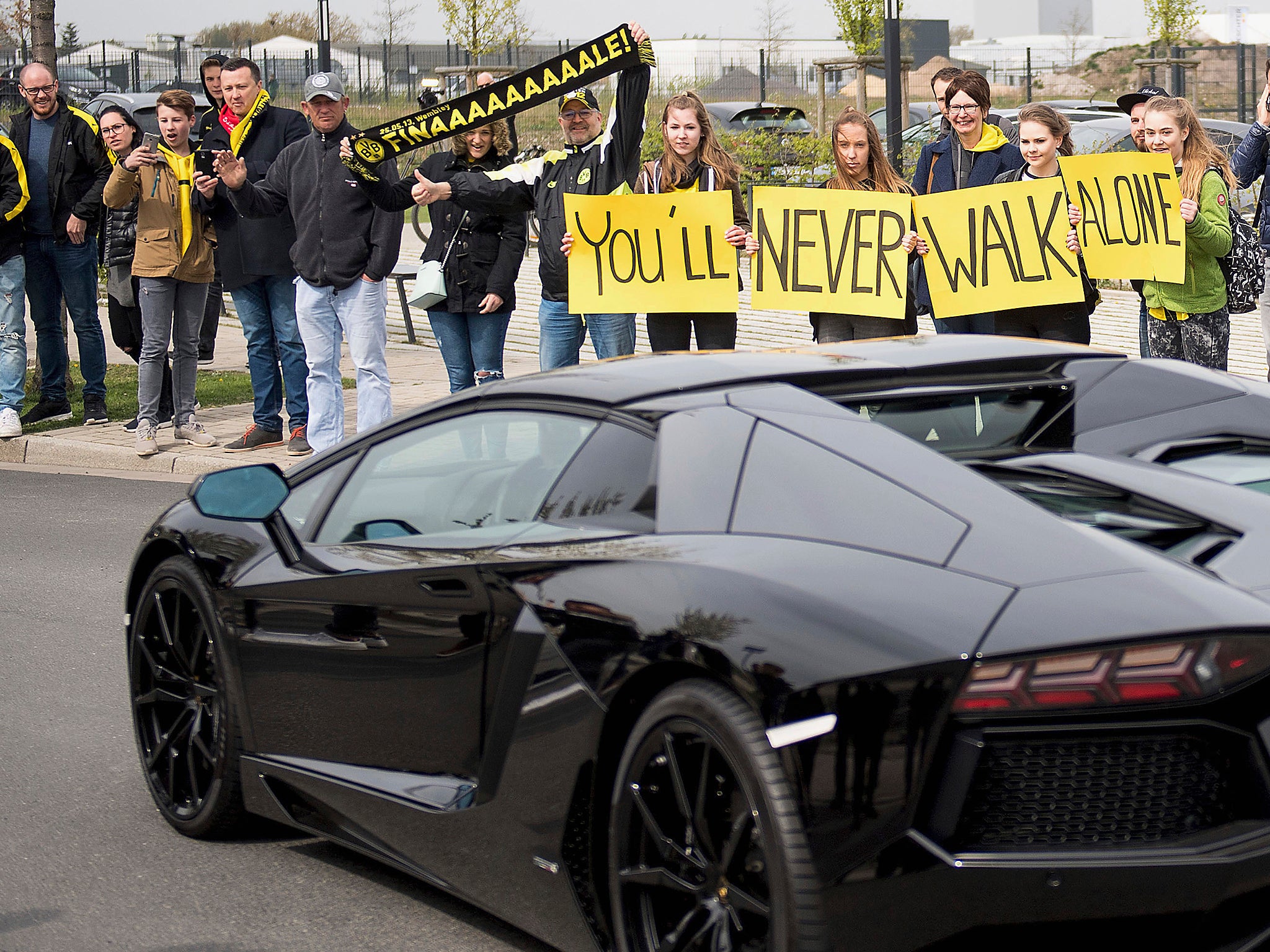Football is a way of life for European jihadis – and their prime target
What surprised the lawyer called to check on the welfare of a young British Muslim returned from Syria was not his experiences of a bloody war zone, but the fact that he was still so keen to discuss England's fortunes on the pitch


Your support helps us to tell the story
From reproductive rights to climate change to Big Tech, The Independent is on the ground when the story is developing. Whether it's investigating the financials of Elon Musk's pro-Trump PAC or producing our latest documentary, 'The A Word', which shines a light on the American women fighting for reproductive rights, we know how important it is to parse out the facts from the messaging.
At such a critical moment in US history, we need reporters on the ground. Your donation allows us to keep sending journalists to speak to both sides of the story.
The Independent is trusted by Americans across the entire political spectrum. And unlike many other quality news outlets, we choose not to lock Americans out of our reporting and analysis with paywalls. We believe quality journalism should be available to everyone, paid for by those who can afford it.
Your support makes all the difference.The bomb attack against the German football club Borussia Dortmund is a grim reminder that football has become a high-profile target among Islamist terrorists. By attacking Europe's most popular sport, terror groups know they can cause the greatest fear while guaranteeing maximum media attention.
In the last 50 years, football has become a central part of Germany's national identity and the team's fortunes are closely followed by millions of fans. It is a fact that has not escaped the attention of thousands of foreign fighters who have flocked to Syria to join Isis, many of whom were football fans in Europe themselves. Now Isis terror planners have factored this into their terror operations.
The first of three bomb blasts that began the terror attacks in Paris in November 2015, which ended with a death toll of 130, was detonated outside the Stade de France stadium where France were playing Germany in an international football friendly. It was only the stadium's tight security that prevented the suicide bomber causing even more casualties.
Paris parks and community halls where football is played have become rich recruiting grounds for Islamist radicalisers. The militants behind the Charlie Hebdo attacks in Paris in January 2015 met and organised themselves around five-a-side football training. When I was researching my book on "Jhadi John", I discovered that football also played a big part in the life of Mohammed Emwazi, an ardent Manchester United fan. Emwazi’s West London network also regularly met to play football and used matches and training sessions to draw new members to their group.
David Anderson QC, the Government’s former independent reviewer of terrorism laws, remembers attending Southwark Police Station to check on the welfare of a young Muslim who had returned from Syria. What surprised him was not so much his experiences of a bloody war zone but the fact the British jihadi was so keen to discuss the fortunes of the England team. He explains: “I remember talking him through the second half of the previous evening’s friendly international which I happened to have seen but he, through force of circumstances, had not. That a suspected jihadi fighter should also be a mad keen England fan will not, perhaps, be a shock to anyone who inhabits the criminal courts. There we learn, if nothing else, that human nature is infinitely various and perpetually surprising.”
But Isis regards football as haram (against Islam) and has carried out a succession of bloody suicide attacks against football venues and bars screening matches outside Europe. One of the worst took place in March last year when a bomber blew himself up in a football stadium in Iskanderiyah, Iraq, killing 29 people and wounding 60. Two months later a group of Isis terrorists armed with AK-47s attacked the headquarters of a Real Madrid supporters club. Three gunmen opened fire around midnight at the Al Furat cafe in Balad, 50 miles north of the Iraqi capital Baghdad. At least 16 people – mainly Real Madrid fans but also cafe staff and other customers – were killed, and more than 20 people injured.
Sport is, of course, no stranger to terrorism. The murder of seven Israeli athletes by the Palestinian militant group Black September at the 1972 Munich Games, and the bomb attack at the 1996 Olympics in Atlanta, Georgia, show how international sporting events have focused the attention of terrorists.
Today, Isis has made football the terrorist sporting target of choice.
Join our commenting forum
Join thought-provoking conversations, follow other Independent readers and see their replies
Comments